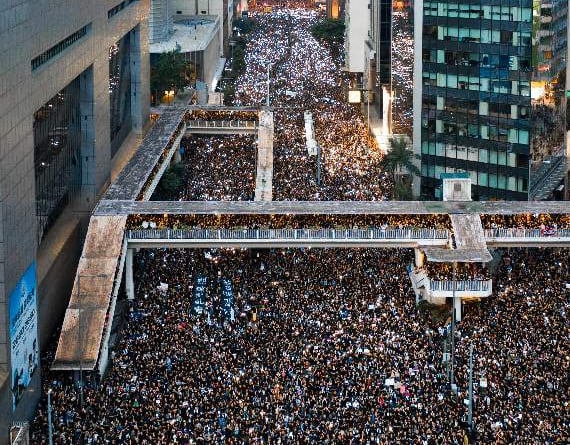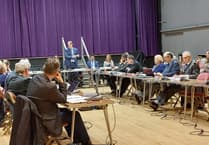THE world may be consumed by coronavirus but other issues won’t go away, as events in Hong Kong demonstrate.
The imposition of a new security law on the territory by China effectively tears up the ‘one country, two systems’ agreement negotiated by Margaret Thatcher in 1984.
It means a city that has become a beacon of enterprise and free speech sees its whole way of life under threat in a way that directly contradicts the Chinese commitment to giving Hong Kong a ‘high degree of autonomy.’
The decision to do this directly followed the umbrella movement protests that started during the period I was foreign secretary.
Some may argue there is little we in the UK can do. But as the only country that has signed an internationally-binding agreement with China about Hong Kong, lodged at the United Nations, we have a particular responsibility that goes beyond any historical affection for a wonderful city and people.
It is an agreement with us – not with the United States, Germany or France – that is being breached. So we must do all within our power to ensure China honours that agreement.
The question is what we can do. China has the second largest economy in the world with huge clout in international organisations such as the United Nations. They are not slow to use their economic levers – as the imposition of 80 per cent tariffs on Australian barley exports after that country had the temerity to call for an independent international enquiry into the origins of the coronavirus pandemic.
There are two things we can and should do.
Firstly we must fulfil our obligations to the people of Hong Kong by allowing the holders of British passports to come to live and work in the UK if they wish to.
Currently the passports they hold are British National (Overseas) passports which do not give them that right.
I believe we should have given it to them back in 1997, but understand the reason we did not: it wasn’t just immigration sensitivities in Britain, but also an understanding that to make ‘one country, two systems’ work we should not take any measures that could lead to a brain drain from Hong Kong.
Now that China is abandoning their side of that agreement, we need to take additional steps to protect the freedoms of people who formerly lived under British rule.
But secondly we need to work with other democracies to present a united front. China is a master at playing us off against each other.
The impact on trade and risk to investment was enough to stop the EU being prepared to sign up the statement on Hong Kong put out by Britain, Australia, Canada and the United States.
We also need to recognise the importance of American leadership, whatever our views on the current president.
Foreign secretary Dominic Raab’s idea of setting up a D10 group of leading democracies (the G7 plus Australia, South Korea and India) is an excellent start. Only if we work together will we have any chance of persuading China to change tack.
No-one should want to stop China’s remarkable rise which is lifting billions out of poverty.
But the problems in Hong Kong demonstrate that if we want to protect democratic values, we’ll need to be much smarter at working together to stand up for them.




